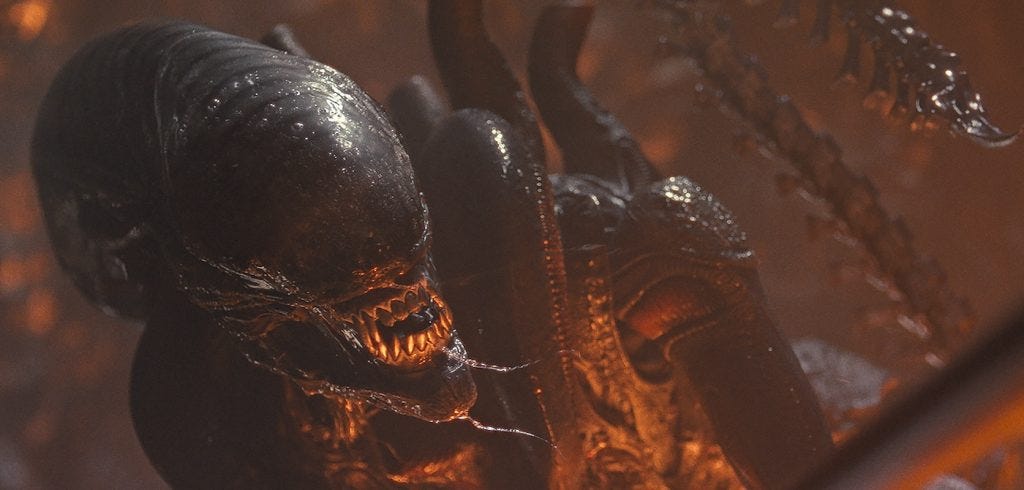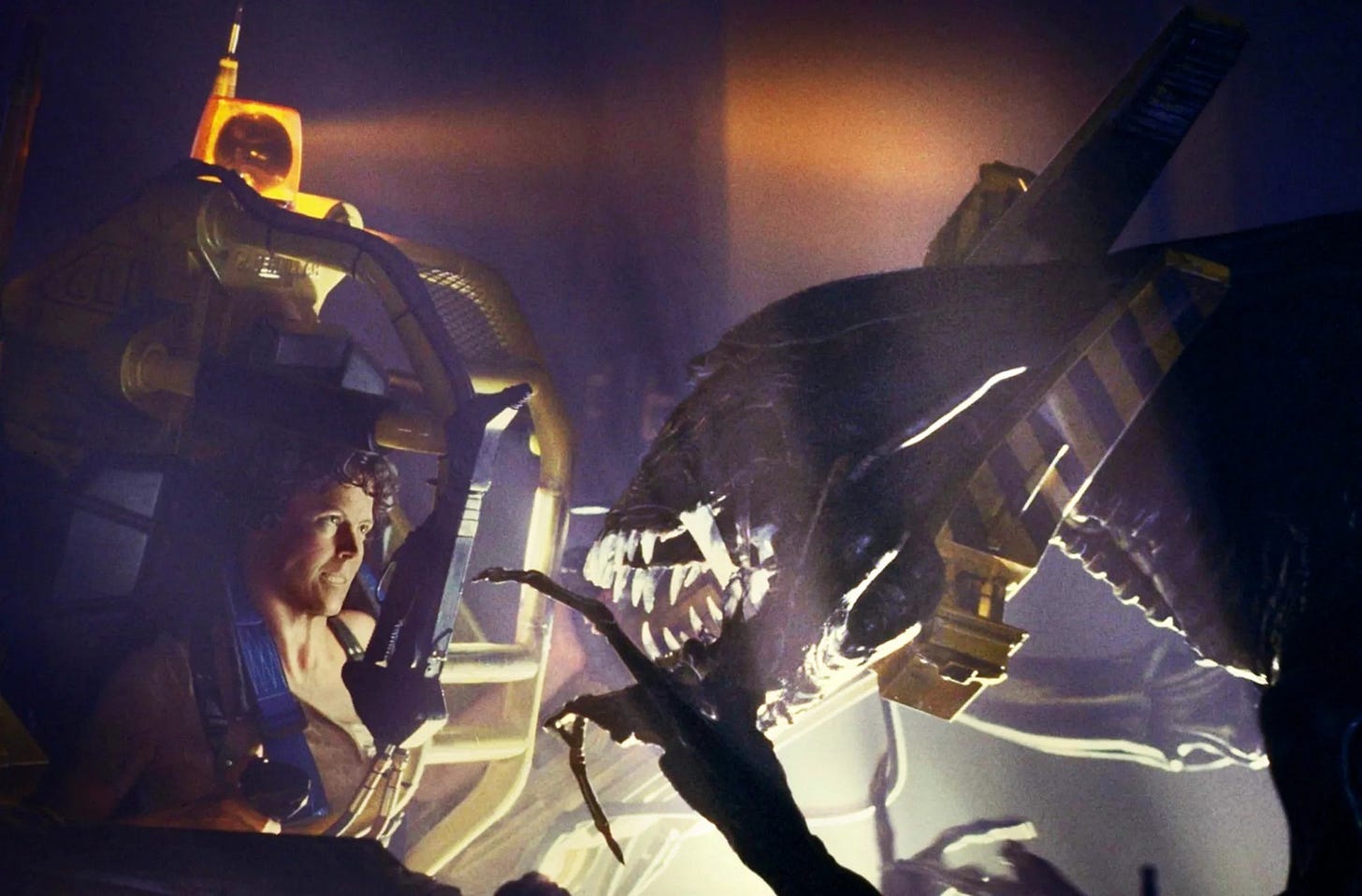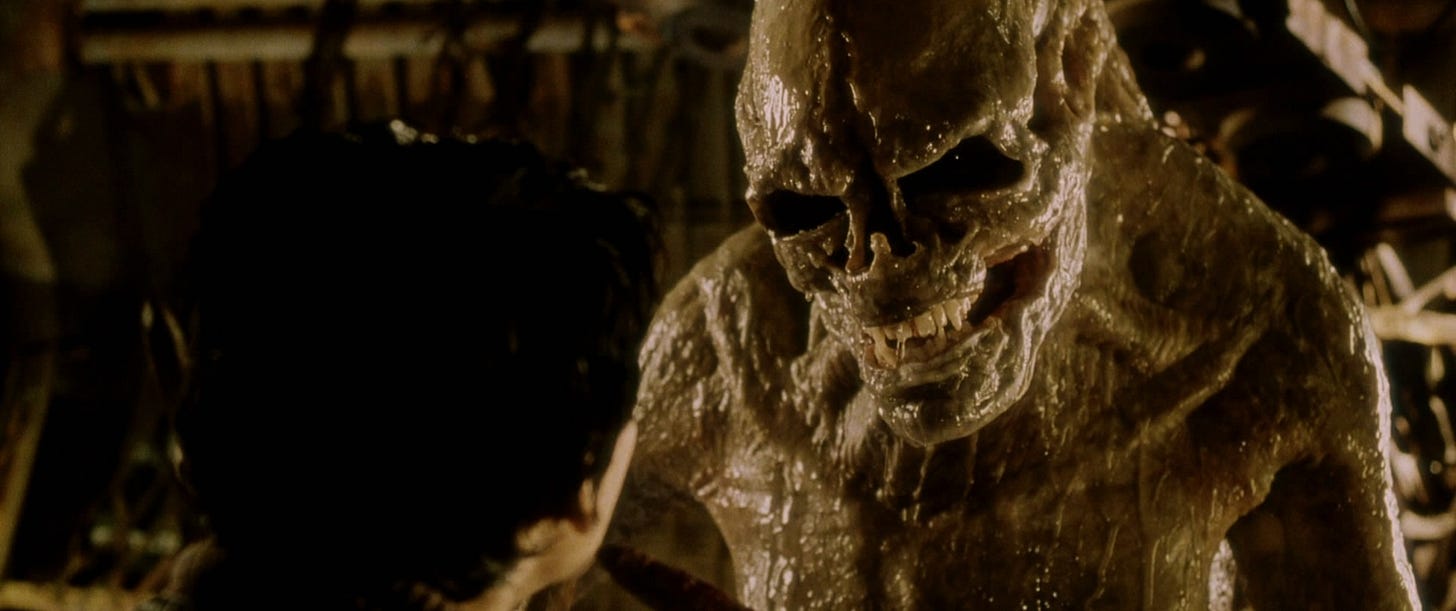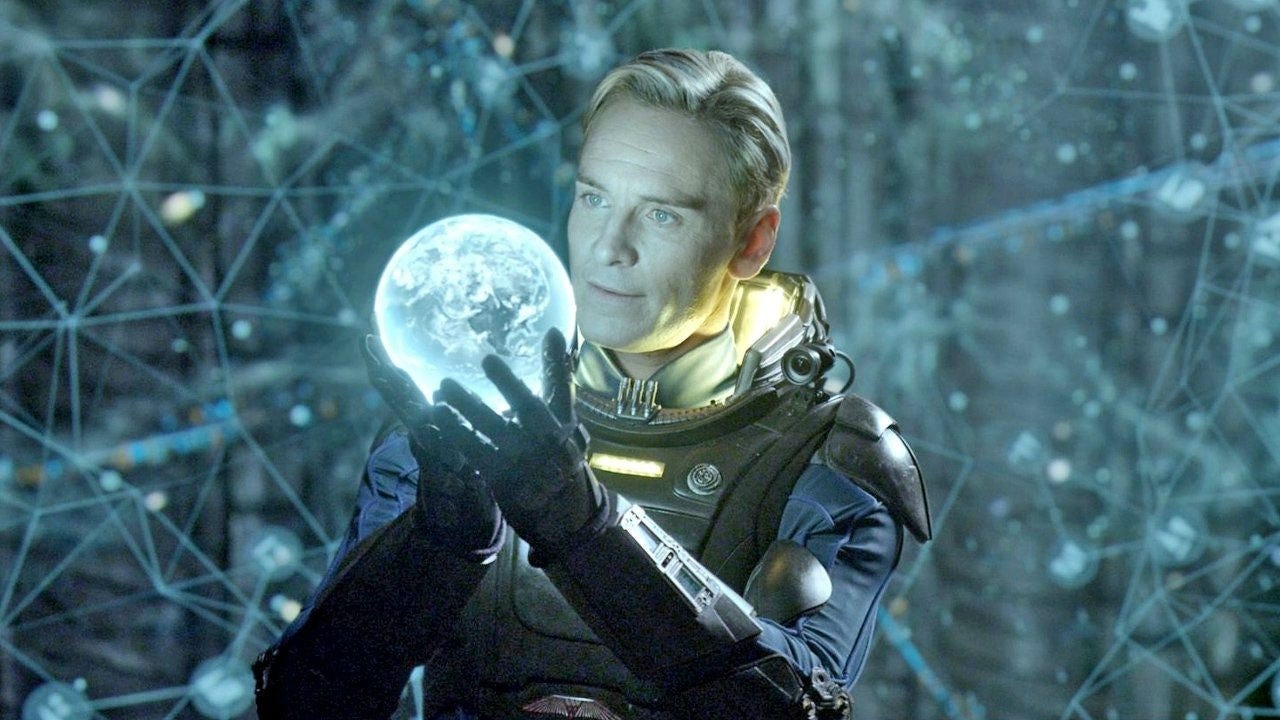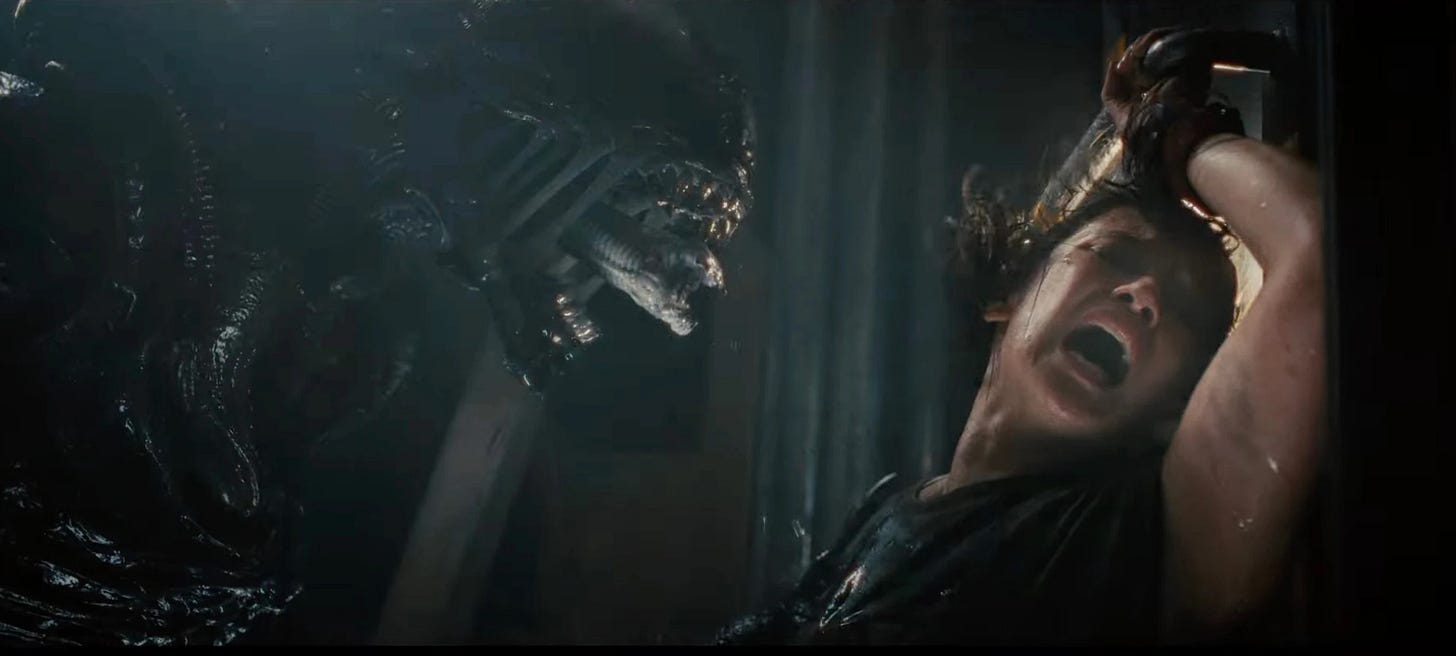Building Better Monsters
A journey through the highs and lows of the Alien franchise
When Ridley Scott released his dark and terrifying masterpiece Alien in 1979, it marked the beginning of what would become an expansive franchise. In the decades since, this horror universe has grown into every corner of mass media.
There have been numerous films, with a series on the way. Additionally, there are novels, comics, video games, board games, and even an award-winning tabletop role-playing game where you can take on the role of desperate space truckers, tough Colonial Marines, and overly curious (and at times fatally inept) colonists.
As this monster of a franchise expanded, we saw examples of how to make good Alien films—and how not to. Several filmmakers contributed, and opinions about what constitutes a "good Alien" film splintered. Some entries were hailed as cinematic masterpieces, while others were either ignored or unanimously slammed.
So, what makes a "good Alien film"? What does it take to create a worthy entry in this iconic sci-fi universe? And what should filmmakers avoid? Let’s explore these questions.
To cook up a good Alien film, several ingredients are necessary, but the most important thing is knowing how to use them correctly. If we were to create a sort of "cookbook," I would say the first ingredient is that the filmmaker must understand the Alien franchise has grown beyond just the screen. Any new film must find its place within this larger universe, building on what other creators have established while adding new elements for future filmmakers to expand upon.
At the same time, filmmakers must remember that although Alien is primarily a horror franchise, it shouldn’t be horror for its own sake. A good story and solid world-building must come first. If you can craft terror within this richly developed universe—one shaped by many talented directors and writers—the chances of creating a good installment in the franchise will improve significantly.
A prime example of "good Alien" is James Cameron’s Aliens (1986), which continued Ellen Ripley’s story—a role that helped cement Sigourney Weaver as a cinematic icon. This action classic expanded the Alien universe with new locations, references, and characters. We learned more about the cynical and pragmatic Weyland-Yutani Corporation and its sinister plans, and we met the tough-as-nails Colonial Marines—who were promptly decimated when they tried to infiltrate a colony overrun by vicious xenomorphs.
On the other hand, we have David Fincher’s Alien 3, which cannot, by any stretch, be called "good Alien." This film seemed to go out of its way to tear down and put an end to the Alien franchise. The script went through many versions (and screenwriters) before ending up with what we got in 1992. While it functions decently as a standalone sci-fi horror, as a sequel to Aliens, it is controversial. The film opens by killing two of the three main characters from the previous movie, which understandably outraged many fans. Set in a harsh prison colony, the film concludes with Ellen Ripley’s death, a decision that made future sequels with Ripley understandably difficult.
Fun fact: If you want to know what Alien 3 could have been like, a book and an audio dramatization of William Gibson’s version were released a few years ago, featuring Michael Biehn as Hicks and Lance Henriksen as Bishop, reprising their roles from Aliens. Neither Biehn nor Henriksen were particularly pleased with Alien 3.
Alien 3 came and went. Ripley, Hicks, Newt, and Bishop were dead, and it seemed like the Alien franchise had hit its sour, off-key note in its final swan song. But this is Hollywood, so, of course, another sequel was in the works. And here, more than anywhere else in the official Alien series, we get an example of how not to do it: Jean-Pierre Jeunet’s Alien: Resurrection (1997).
Set two centuries after the events of Alien 3, Alien: Resurrection follows sinister scientists who have recovered Ellen Ripley’s DNA and begun cloning her with xenomorph DNA to breed a "queen" and harvest her eggs to create the perfect biological weapon. Naturally, this plan goes horribly wrong, and we end up with a bizarre Alien film that tries to cram in as much grotesque horror as possible while also throwing in half-hearted humor, dulling the overall impact. This is a film most Alien fans prefer not to talk about, and it’s rarely even considered a serious part of the franchise.
After the Alien: Resurrection blunder, it seemed like the franchise, at least in terms of major films, had met its end. However, several novels, comics, and games were released during this period. In 2004, the first Alien vs. Predator film was released, inspired by a scene in Predator 2, where a xenomorph skull could be briefly spotted in the background. What 20th Century Fox had intended as a fun Easter egg soon spawned a whole side franchise, with bloodthirsty xenomorphs battling predatory Yautja (that’s nerdish for Predator). The 2004 film got a sequel in 2007, Alien vs. Predator: Requiem, a movie so over-the-top that the two franchises wisely went their separate ways afterward—at least on-screen.
After years without new films, many fans had resigned themselves to only seeing xenomorphs and Colonial Marines in books and comics. But then came the news: Ridley Scott, the man behind the original Alien from 1979, was returning. In 2012, we got Prometheus. Fans hoping for more xenomorph action were disappointed. Instead, Ridley Scott gave us something deeper and more reflective—an exploration of life’s origins, religion, and survival.
This was the story of the devious android David (brilliantly portrayed by Michael Fassbender) rebelling against his creator and leading all the angels to hell. The religious symbolism was abundant, and to this day, fans debate whether Prometheus is genius or trash. However, one thing is clear: Ridley Scott expanded and enriched the world he helped create.
After Prometheus, many fans loudly expressed their longing for more xenomorphs, to which Ridley Scott responded: "They want aliens, I'll give them fucking aliens!" And so, in 2017, the follow-up Alien: Covenant was released—a film that feels like a strange blend of Prometheus and Alien. Many of the great ideas from Prometheus remain, although Scott chooses to (7-year-old spoiler alert!) kill off the protagonist, Shaw (played by Noomi Rapace), between films. Instead, the android David takes center stage with sinister plans for humanity. And, as a big nod to fans, the xenomorph was back.
Fans weren’t particularly impressed with this film either. It became clear that new voices were needed to continue telling stories in the Alien universe. And in 2024, seven years after Alien: Covenant, we got the answer: Alien: Romulus.
What a time to be an Alien fan! Horror maestro Fede Alvarez, who gave us the gory and bizarre 2013 remake of Sam Raimi’s Evil Dead, demonstrates with this film that he knows all the ingredients needed to bake a well-crafted Alien film.
Alien: Romulus includes all the necessary components to make a "good Alien" film: solid world-building that draws on the foundations of Alien and Aliens, as well as Ridley Scott’s more recent contributions, without letting fan service and Easter eggs overshadow the story. We also get likable characters, particularly the protagonists Rain and Andy, a straightforward yet thrilling plot, and familiar dangers with a new twist. The movie is both eerie and grotesque, with scenes that fans will be discussing for years. After all, this is the work of a "master chef" like Fede Alvarez.
What a time to be an Alien fan! Not only have we received a great new Alien film, but next year, we’ll also get the first Alien TV series. Alien: Earth is described as a prequel to Ridley Scott’s original 1979 film, set on our own planet. I can’t wait!


